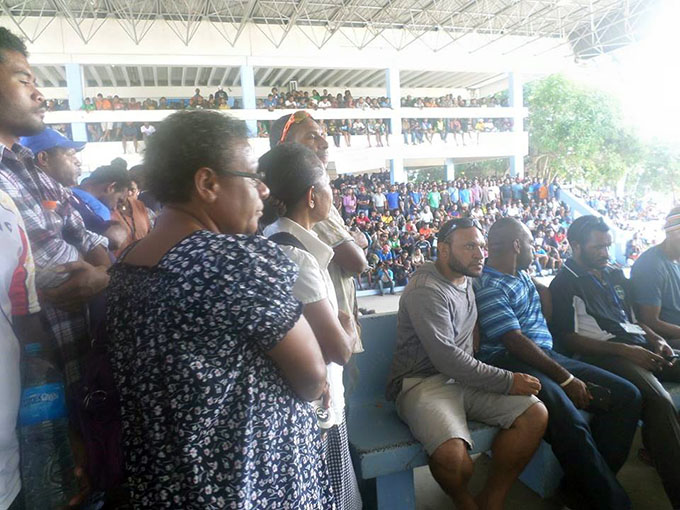
Administrations at both of Papua New Guinea’s two major universities have contrasting approaches to dealing with the national student standoff against the prime minister.
While the University of Papua New Guinea in Port Moresby has closed its doors to more than 4500 striking students, the University of Technology in PNG’s second city Lae has taken a more neutral stance, reports Radio Australia.
Students throughout Papua New Guinea are calling on Prime Minister Peter O’Neill to step aside and face an investigation over corruption allegations.
The UPNG Council yesterday announced suspension of the semester but in an interview with Radio Australia’s Pacific Beat, vice-chancellor Dr Albert Schram said his students were doing what they felt was the right thing for the country.
“This is really a national student movement with all the state universities participating. It’s been endorsed by two former prime ministers, a former Supreme Court judge, a former attorney-general and an ombudsman,” he told Pacific Beat.
“These are very respectable and accomplished Papua New Guineans who believe that the students are fundamentally right in their demands.”
Dr Schram said a student referendum overseen by the country’s Electoral Commission eased tensions around his university’s class boycott, but UPNG students had not been allowed to hold a similar vote.
The poll showed that the overwhelming majority of students at Unitech were in favour of boycott.
“That created a clarity which has been lacking at UPNG, and frankly I question the present stance of the [UPNG] management and the council,” Dr Schram told Pacific Beat.
“If you don’t allow the students to hold a referendum, then you’re damned if you do and you’re damned if you don’t – it’s not fair.”
Students at the University of Technology have even travelled to nearby towns and provinces to explain their boycott to the public, reports Radio Australia.
Dr Schram says while the university leadership is not anti-government, it supports the right of boycotting students to express themselves democratically.
“I wish [the students] would not have been faced with this choice of choosing between their studies and their only chance to finish higher education, often sponsored by their parents and the whole clan … and what they feel is the right thing to do for the country,” he said.
He said it was unlikely that the University of Technology would suspend semester one classes in the same way UPNG has.
“We’ve had four boycotts over the last five years and the longest lasted about five weeks, and we’ve always been able to finish the academic year,” Dr Schram said.
“So as long as they don’t last for, let’s say more than two months, it’s possible for the academic board to rearrange the calendar.”







































